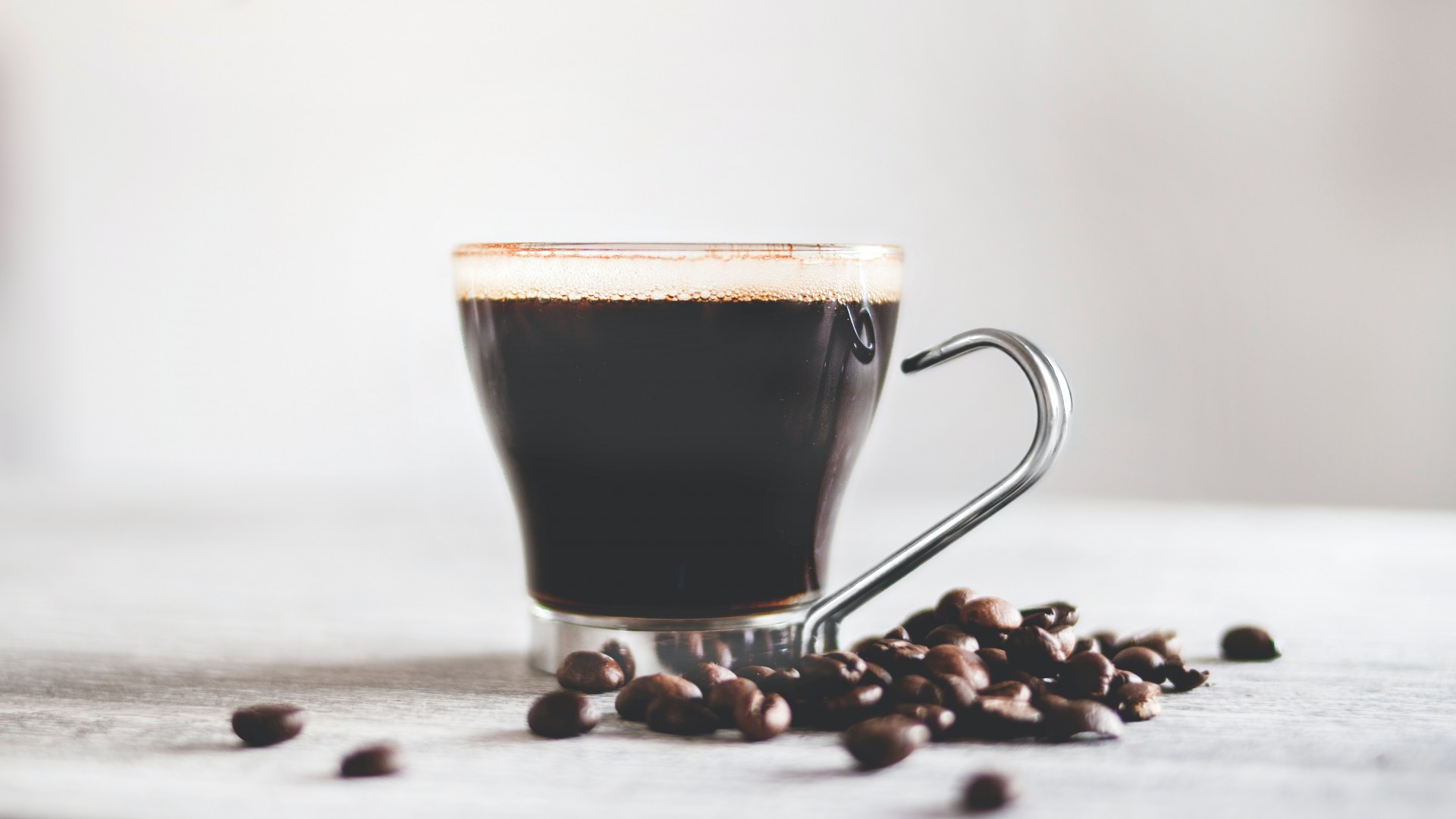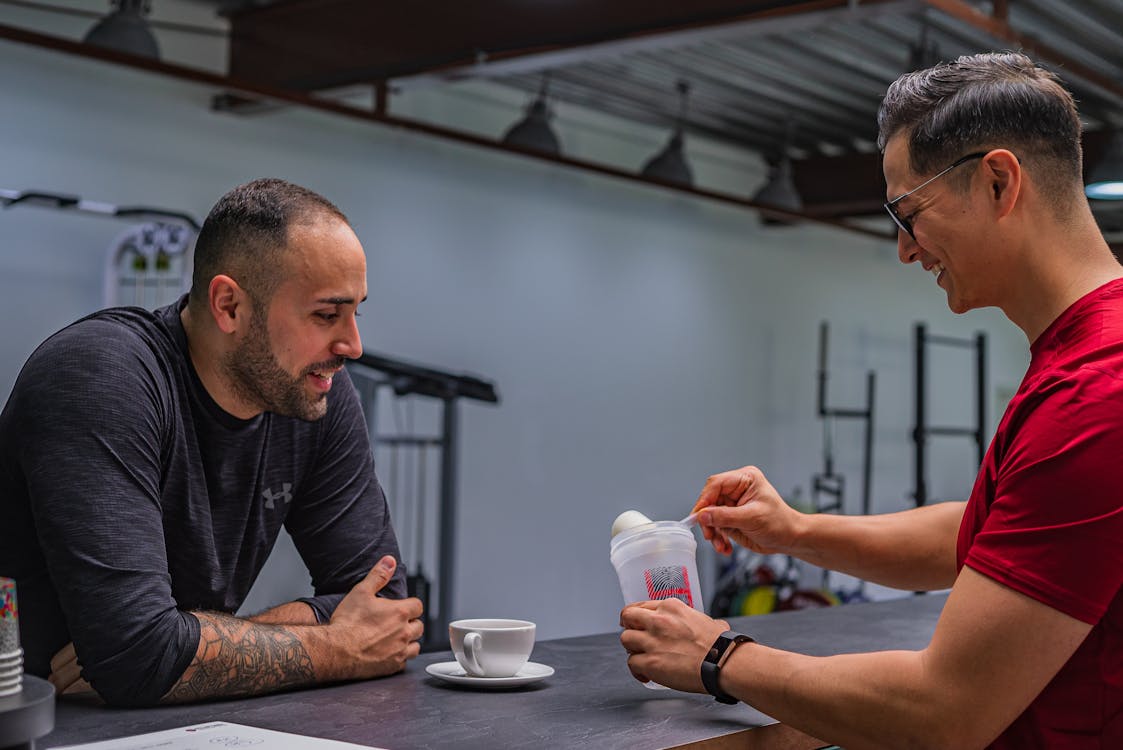
There’s nothing like a good, strong cup of coffee to start the day. For most of us, it’s become a part of our morning ritual: wake up; throw alarm at the wall; bathroom; coffee; start the day.
Whether you're drinking coffee for motivation to go to work; to force you awake at an ungodly 5 am to make the 6 am Body Pump class; perhaps it's the double shot Americano to keep you awake in meetings, or the post-work double espresso to motivate you for the 6 pm gym session, we all use coffee for our enjoyment our own way, and for some of us, we rely on it to power through the day.
For athletes, gym-goers and those who are active, there’s a particular curiosity surrounding coffee and how it might affect mental and physical performance during exercise.
So, what are the benefits of coffee specifically for performance during exercise? And what is it about coffee that makes it so beneficial?
What is in a cup of coffee?
Caffeine is a natural stimulant and one of the primary active ingredients in coffee. Caffeine is also found in tea and chocolate, and is a common ingredient in energy drinks, diet aids, supplements, and some energy gels.
Black coffee contains several micronutrients, notably potassium, magnesium and niacin, with very low levels of sodium ( 1 ). A single cup of coffee (8oz, 237g) contains ( 2):
- Caffeine : 94.8mg
- Riboflavin (vitamin B2): 0.18mg - 14% of the Reference Daily Intake (RDI).
- Pantothenic Acid (vitamin B5 ): 0.6mg - 12% of the RDI.
- Manganese: 0.05mg - 2% of the RDI
- Potassium: 116.1mg - 2% of the RDI.
- Magnesium: 7.1mg - 2% of the RDI
- Niacin (vitamin B3): 0.45mg - 3% of the RDI.
- Folate: 4.7mcg - 1%
- Protein: 0.28g -1%
How much coffee is too much?
The upper limit for coffee consumption is primarily set with regard to its caffeine content. It's widely accepted that 400mg of caffeine per day is the recommended daily limit for caffeine consumption, that's about 4 cups of coffee.
It's important to note that people react and respond differently to caffeine- its effects can differ from person to person. So, it's important to test your limits with caffeine and find what is best for you.
Studies show that having 3-4 cups of coffee a day gives you the health benefits of caffeine . For optimum benefits for a workout, consume a range of 1-3mg/kg M or 70-150mg caffeine before or during exercise ( 3).
Drinking more caffeine than the recommended amount doesn’t give you more benefits! It’s important to stick within the recommended range of caffeine for the best chance of the performance benefits without the negative side effects.

The Positive Effects of Coffee on Performance
Coffee is natures pre-workout. The caffeine in coffee is a stimulant and helps resist fatigue and increases energy levels ( 4,5,6, 7).
When you drink coffee, the caffeine is absorbed into your bloodstream and travels to the brain where caffeine blocks the neurotransmitter adenosine. Adenosine is a sleep-promoting chemical that is produced in the brain while we are awake. Normally, adenosine builds up in the brain the longer we're awake ( 8 ). While caffeine blocks the brain chemical that makes you feel tired (adenosine), at the same time it triggers the release of adrenaline which is known to increase energy and make you more alert.
Coffee Burns Fat and Increases Metabolism
Several studies show that caffeine can increase fat burning, and boost your metabolic rate by 3–11% ( 19,20, 21).
Caffeine stimulates your nervous system, sending signals to fat cells to break down body fat and, in doing so, making free fatty acids available as fuel ( 15, 16 , 17, 18 ).
It’s no coincidence that caffeine is found in most commercial fat burners- It’s one of the few natural substances proven to promote fat burning by 10% in obese individuals and 29% in lean people ( 22).
If fat loss is a goal, Prep Kitchen provide delicious meals prepared by skilled chefs that accommodate you and your goals!
Coffee Improves Endurance
Coffee and caffeine have been proven to cause major improvements in performance for endurance athletes, so much so that some organizations have even started to ban it in high doses!
Caffeine increases adrenaline (the fight-or-flight hormone) levels in your blood ( 24, 25) which prepares your body for intense physical exertion. This enhances endurance by allowing you to train at a greater power output, greater speed, and/or train longer, with the effects found to last from one minute to as long as two hours ( 23).
Combining the fact that caffeine causes fatty acids to release from fat tissues (creating a fuel source) and the increase in adrenaline, it’s not surprising that caffeine can improve physical performance by 11–12% on average ( 26, 27 ).
Coffee Improves Concentration and Makes You Smarter
“Caffeine enhances neurocognitive function by reorganizing brain functional connectivity” (28). This roughly translates to: "Caffeine increases brainpower!".
Ask anyone who has gone full-send on an echo or assault bike and they’ll tell you that it wasn’t the smartest thing to do. So, if you’re wondering why being smarter helps with performance, this is why. As an athlete myself a big part of tackling sports or a workout is about strategy.
When caffeine blocks adenosine (the ‘feel-sleepy’ chemical) in the brain, the amount of other neurotransmitters like noradrenaline and dopamine (the ‘happy’ hormone) increases, leading to enhanced firing of neurons ( 9 , 10). This improves mood and brain functions such as memory, vigilance, alertness, concentration and reaction times ( 11 , 12 , 13).
Coffee Reduces Your Rate of Perceived Exertion (RPE)
RPE is what we use to measure the intensity of your exercise on a scale from 0-10- ‘0’ being at rest, such as watching Netflix, and ‘10’ being maxed effort intensity.
The effect of caffeine on the central nervous system has been shown to reduce your RPE by masking the perception of effort, meaning you can train harder for longer ( 33, 34).
The Side Effects of Coffee
Though caffeine has many positive effects on performance, it’s important to note its risks and side effects- particularly when overconsuming. Some of the side effects of coffee that affect performance are:
· Increased Heart Rate
Caffeine is a stimulant, and the effects of consuming high amounts can cause your heart to beat faster and also cause an irregular heart rhythm (atrial fibrillation) ( 35).
In some cases, even modest doses have been shown to cause rapid breathing and increase stress levels when consumed in one sitting ( 36).
Generally, the side effects of coffee vary from person to person, but if you are experiencing rapid heart rate or irregular heart rhythm, it may be time to reconsider just how much coffee you’re drinking.
· High Blood Pressure
The stimulatory effects of caffeine have been shown to increase blood pressure ( 40, 41). In large doses, caffeine has been shown to raise blood pressure during exercise in healthy people as well as in those with mildly elevated blood pressure ( 42, 43)
High blood pressure can put you at risk for heart attack and stroke. Luckily, with caffeine, the effects on blood pressure seem to be temporary.
· Can affect your Sleep
The same chemical reaction firing away in your brain that causes you to have increased energy and more brainpower is the same reaction that can make it harder to go to sleep. This causes reduced total sleep time and sleep efficiency, and worsened perceived sleep quality ( 44).
Studies have found that higher caffeine intake appears to increase the amount of time it takes to fall asleep ( 45, 46). However, low or moderate amounts of caffeine don’t seem to affect sleep very much in people considered “good sleepers,” or even those with self-reported insomnia ( 47), 48).
It’s easy to underestimate how much caffeine we actually drink if we focus purely on coffee. Remember, caffeine is also found in soft drinks, energy drinks, energy gels, cocoa and many types of medication.
To avoid sleeping problems, try cutting your caffeine intake in the early afternoon. Sleep is crucial to your body’s recovery and for optimum performance in sports and exercise.
· Anxiety
High doses of caffeine can cause anxiety. Caffeine increases alertness by blocking adenosine, the chemical that makes you feel tired, while at the same time triggering the release of adrenalin that's known to increase energy. If the amount of caffeine is high enough, these effects are stronger and can result in caffeine-induced anxiety ( 50).
Taking in 1000mg of caffeine or more per day has shown to cause nervousness, jitteriness, heart palpitations, nervousness, anxiety, exacerbated panic attacks and headaches. In some cases, even moderate amounts led to similar effects in caffeine-sensitive individuals ( 51 , 52 , 53).
· Muscle Tissue Breakdown
Rhabdomyolysis is a very serious condition where the breakdown of muscle tissue leads to the release of muscle fibre into the blood, which can cause kidney damage ( 54).
Several reports show the Rhabdomyolysis is related to excessive caffeine consumption; however, it is quite rare ( 55, 56 ).
Rhabdomyolysis should be considered a potential health hazard from excessive consumption of caffeine-containing products.
Limit yourself to 250mg per day if you’re uncertain of your tolerance.
Final Thoughts
Be mindful of drinking too much coffee. Drinking high doses of caffeine show side effects that can affect day to day living (anxiety, nervousness, insomnia, rapid heart rate, increased blood pressure) and might cause even health issues (muscle breakdown).
Be honest with yourself and assess how you feel after a cup of coffee, whether it be in the morning before work, or an hour before a workout. Genetics play a part in how responsive you are to caffeine, and because people's reaction to caffeine and caffeine sensitivity can vary from person to person, it's important to monitor your response to caffeine to fully understand your bodies relationship with that double latte. Or americano.
All in all, enjoy your double-shot iced vanilla latte! Or however you enjoy your coffee. Coffee has many effects that can positively affect your performance: improved energy levels, alertness, metabolism, endurance, RPE, and brainpower. With an overwhelming amount of research on the topic, the biggest takeaway is that coffee does more good than bad and that moderate consumption can be good for you and your performance. But moderation is key!
Author - Paulo Vaa


